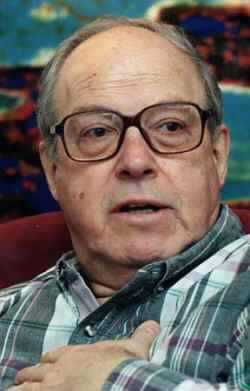HIGHLIGHTS: In a Letter to Annan Sabri Invites Blix & Team for Discussions||Bush Reaffirms Commitment to a 'Regime Change' in Iraq||Bush & Jordan's King Differ over Iraq & the Pace of American Peacemaking in the Middle East|| STORY: As Washington escalated threats against President Saddam Hussein, the Iraqi government invited the chief U.N. inspector to Baghdad for technical talks and hinted at a return of arms inspectors for the first time since December 1998.
In a letter to U.N. Secretary-General Kofi Annan on Thursday, Iraq's foreign minister, Naji Sabri, said he would like the talks "at the earliest possible" date between chief U.N. inspector Hans Blix and his arms experts.
Sabri said discussions should cover outstanding disarmament issues "to establish a solid basis for the next stage of monitoring and inspection activities and to move forward to that stage."
But he also mentioned the need for an assessment and a "comprehensive review" of Iraq's arms programs. Blix, who met Iraqi arms experts in Austria last month, said then he could only arrange practical issues and could not evaluate weapons of destruction until the inspectors were back on the ground.
Annan concluded an unsuccessful third round of talks with Sabri in Vienna on July 4-5 with no progress but left the door open for technical talks. But he told reporters and U.N. Security Council members he would not meet Sabri again on this issue unless Iraq showed willingness to admit the inspectors.
The inspectors left Iraq in December 1998 on the eve of a U.S.-British bombing campaign to punish Baghdad for not cooperating with the arms experts. Accounting for Iraq's weapons of mass destruction is key to suspending U.N. sanctions, imposed when Iraq invaded Kuwait in August 1990.
Blix, the executive chairman of the U.N. Monitoring, Verification and Inspection Commission, known as UNMOVIC, was not available for comment. A senior U.N. official confirmed Annan had received the letter, a copy of which was seen by Reuters.
"REGIME CHANGE"
The letter arrived on a day that President Bush reaffirmed his administration's commitment to a "regime change," a euphemism for toppling Saddam.
"The policy of my government, our government, this administration, is regime change, for a reason," he said after talks with Jordan's visiting King Abdullah.
One key reason the Bush administration has given for a "regime change" is its suspicion that Iraq has restarted its weapons of mass destruction programs. At the same time, Defense Secretary Donald Rumsfeld has scoffed at the inspectors' ability to find anything, despite success during their first eight years of surveys.
BUSH, JORDAN KING DISAGREE ON IRAQ
President Bush and Jordan's King Abdullah, meanwhile found themselves in disagreement Thursday over a possible U.S. attack to topple Iraqi President Saddam Hussein and over the pace of American peacemaking in the Middle East.
The king soft-pedaled his opposition to a potential U.S. military strike against Baghdad. But Bush, in an Oval Office picture-taking session with the monarch, made clear he had not changed his mind about considering "all tools" to bring about regime change in Iraq.
Abdullah responded mildly: "I found from Day One with the president he understands the bigger picture."
PHOTO CAPTION
Iraq on August 1, 2002 invited chief U.N. weapons inspector Hans Blix to Baghdad for technical talks, as a possible step toward the resumption of arms inspections, according to a letter to Secretary-General Kofi Annan. The letter from Iraqi Foreign Minister Naji Sabri said Blix, seen in this Feb. 2, 1997 file photo, and his experts were welcome to discuss outstanding disarmament issues. (Lenart Nygren/Scanpix via Reuters)
- Author:
& News Agencies - Section:
WORLD HEADLINES


 Home
Home Discover Islam
Discover Islam Quran Recitations
Quran Recitations Lectures
Lectures
 Fatwa
Fatwa Articles
Articles Fiqh
Fiqh E-Books
E-Books Boys & Girls
Boys & Girls  Ramadan
Ramadan Fatwa Audios
Fatwa Audios Month of Mercy
Month of Mercy Women
Women Eed Al- Fitr
Eed Al- Fitr Food Recipes
Food Recipes Videos
Videos

 Prayer Times
Prayer Times












